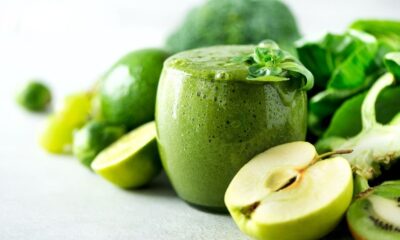Health & Wellness
Licorice Root: More Than a Sweet Treat – Unveiling Its Therapeutic Properties
Licorice root, derived from the plant Glycyrrhiza glabra, is far more than the confectionery flavoring that many associate with black licorice candy.
This ancient herbal remedy, esteemed in traditional medicine systems worldwide, including Chinese, Egyptian, and Greek medicine, harbors a myriad of health benefits that extend well beyond its culinary uses.
With a rich history dating back thousands of years, licorice root has been revered for its ability to treat various ailments, particularly digestive issues and respiratory conditions.
This article delves into the therapeutic properties of licorice root, spotlighting its significance in natural healing practices.
Digestive Health Champion
Licorice root is perhaps best known for its powerful effects on digestive health.
It contains glycyrrhizin, a compound that has anti-inflammatory and immune-boosting properties, making it effective in treating various gastrointestinal problems:
- Peptic Ulcers: Licorice root has been traditionally used to soothe the stomach lining and reduce gastric acid secretion, aiding in the healing of peptic ulcers. Studies suggest that its demulcent (soothing) properties can protect the stomach and duodenum from the damage caused by stomach acid.
- Gastroesophageal Reflux Disease (GERD): Licorice root can enhance the mucosal lining of the esophagus, helping to alleviate the symptoms of GERD, such as heartburn and acid reflux.
- Irritable Bowel Syndrome (IBS): The antispasmodic and anti-inflammatory effects of licorice root may provide relief from the cramping and discomfort associated with IBS.
Respiratory Relief
Licorice root’s therapeutic benefits extend to the respiratory system, where its expectorant and anti-inflammatory properties can significantly alleviate various conditions:
- Coughs and Colds: Licorice root acts as an expectorant, helping to loosen and expel phlegm, while its soothing effect on the throat makes it a popular remedy for coughs and sore throats.
- Asthma: By reducing inflammation in the airways, licorice root can help ease the symptoms of asthma, making breathing easier for those affected.
Additional Health Benefits
The healing properties of licorice root go beyond digestive and respiratory health:
- Anti-inflammatory Effects: Licorice root can modulate the body’s inflammatory response, potentially benefiting conditions characterized by inflammation, such as arthritis and skin diseases like eczema.
- Antiviral and Antimicrobial: Some studies suggest that licorice root has antiviral and antimicrobial activities, offering potential use in fighting infections.
- Adrenal Support: Licorice root may support adrenal gland function by preventing the breakdown of adrenal hormones like cortisol, thus helping the body to better manage stress.

How to Use Licorice Root
Licorice root is available in various forms, including teas, capsules, tinctures, and powders. The method of consumption often depends on the condition being treated.
For digestive issues, a soothing tea may be beneficial, while tinctures or capsules might be more appropriate for systemic conditions.
Cautions and Considerations
Despite its many health benefits, licorice root should be used with caution. Excessive consumption, especially of glycyrrhizin-containing licorice, can lead to adverse effects like hypertension, edema (swelling), and electrolyte imbalances.
It is generally advised to use deglycyrrhizinated licorice (DGL) for long-term use, as it contains little to no glycyrrhizin, reducing the risk of side effects.
Pregnant and breastfeeding women, and individuals with conditions like high blood pressure, kidney disease, and those taking certain medications, should consult a healthcare professional before using licorice root.
Conclusion
Licorice root offers a plethora of health benefits that extend well beyond its use as a flavoring agent.
Its therapeutic properties make it a valuable natural remedy for a wide range of conditions, especially those related to digestive and respiratory health.
However, as with any herbal supplement, it is crucial to use licorice root responsibly and be mindful of potential side effects.
By integrating licorice root into a holistic approach to health, we can tap into the ancient wisdom that has celebrated this remarkable root for centuries.











